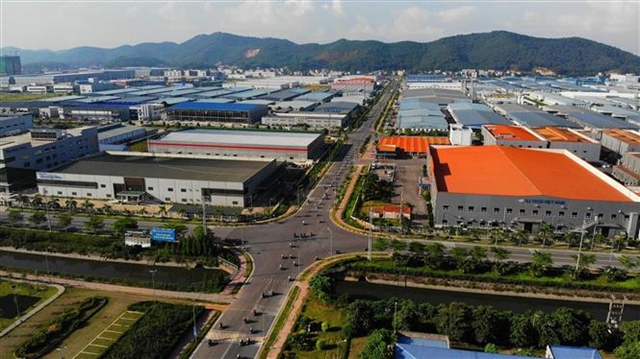 Economy
Economy

.jpg) |
| Officers in Hòa Thành - Dương Minh Châu in Tây Ninh province help taxpayers carry out administrative procedures. — VNA/VNS Photo |
HÀ NỘI — Việt Nam’s business and investment climate is showing marked improvements following sustained reform efforts, with enhanced access to business-related information and regulations, reduced unofficial costs, and effective administrative reforms, according to the latest survey by the Việt Nam Chamber of Commerce and Industry (VCCI).
So far this year, the business community has witnessed positive policy shifts from regulatory bodies, with the government actively addressing outdated regulations and streamlining administrative procedures. However, enterprises have higher expectations on the reforms and resolve to handle the bottlenecks of the regulations.
One major concern remains fire safety regulations, including specifications for fire-resistant paint, fire resistance ratings, fire separation distances, and water supply system having creating significant obstacles for businesses. Many completed buildings remain unused due to the requirements, resulting in substantial losses for firms and society.
Dialogues have been held between state management agencies and associations and businesses to revise the law on fire prevention and fighting to remove roadblocks for them.
The transit cargo regulations have challenged the logistics sector as well. According to Chairman of the Việt Nam Logistics Business Association Đào Trọng Khoa, Vietnamese transport companies have faced penalties for violations of transit cargo regulations although they are not allowed to verify the contents of the cargoes while the goods’ information in the customs declaration is provided by their partners.
Environmental protection fees for emissions present another obstacle, with potential overlaps with the environmental protection law.
VCCI Deputy Secretary General and head of the chamber’s Legal Department Đậu Anh Tuấn said that while economic tools are crucial for environmental protection, businesses already face multiple environmental obligations, including solid waste, wastewater and hazardous waste fees.
Việt Nam has enacted the environmental protection tax law, which levies taxes on petroleum and coal, the primary fuels responsible for emissions. Current environmental protection laws stipulate the issuance of environmental permits, which include provisions regarding the quantity and quality of emissions as well as automatic and periodic monitoring measures.
Most businesses have complied with these obligations, enabling government agencies to gather sufficient data to impose taxes on emissions rather than taxing input fuels, he said.
Tuấn added that although competent ministries and sectors have reviewed and built measures to reduce and simplify various business–related requirements over the recent three years, they have not met businesses’ expectations. He expressed his hope for continued reform efforts to address investment barriers and business constraints. — VNS




